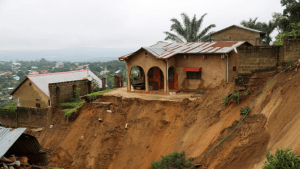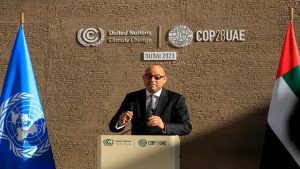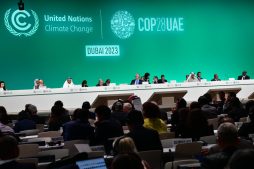Government says it has failed to reduce plastic litter despite introducing legislation to reduce plastic waste in 2003. The legislation increased the thickness of plastic to be used and charged consumers a levy when buying plastic bags. However, this did not help in reducing the use of harmful plastic products and litter.
The department of Environmental Affairs is currently holding a two-day plastic colloquium in Johannesburg to see how they can address this crisis. In 2018, the department indicated that they were looking at possibly reviewing legislation with the view of phasing out the use of harmful plastics.
Albi Modise, head of communications at the department of environment affairs, says plastic waste is becoming a great concern; hence government introduced a two day colloquium to address the problem.
“It’s bad because at the beginning, we had put in place two policy interventions and there was regulation in plastic policy. We introduced the plastic levy, which sort to curb the demand for especially single use plastic. And of cause over the years, with growth in population and urbanisation, the use for single use plastic has been increasing and it also ends up in the ocean and poses threat to fish stock. It’s become clear that as this rate, if we do not do anything, we might end up with more plastic in the ocean than fish.”
Modise says the problem is further increased by urbanisation and illegal selling of plastic bags.
“But what we have seen is that with the growth of informal settlements, you see the emergence of plastic bags where they are not sold at all; they are given out for free and, therefore, there are those illegal ones coming into the market.”
Government says they will be looking at different ways to solve plastic waste at its two day colloquium. The department has also set aside R149 million for the green economy; especially recycling of plastics. Modise says will also help create jobs within the green economy.
“The reason why you have a colloquium of this nature is simply because you can arrive at the policy direction. You can’t say you want to burn and have a colloquium; you will be defeating the whole objective. So let’s allow this colloquium to deliberate on this whole issue and let’s allow NGO’s and everyone to explain the challenges that they have seen. Let’s allow those who operate within the ocean space and talk to us about the depth of the challenge as far as plastic pollution is concerned and let’s allow those in the recycling space to talk about how best we can energise the sector.”
Some recycling companies showcasing their products at the colloquium say they hope government will take their inventions seriously. Many say they are already employing a number of people by manufacturing various products using recycled plastic.
“Our big stream it is plastic and paper because we come from kwaMashu and we have established a buy back centre. As we talk right now, we have about 162 workers.”
A number of countries across Africa have already banned the use of single plastics. These include countries like Kenya, Rwanda and Ghana.
Cleaning up the continent.
? Read more: https://t.co/Pp3JFQ2S9Q pic.twitter.com/j27BuVnOo4
— World Economic Forum (@wef) November 17, 2019
The United Nation is seeking to eliminate single-use plastic by 2022 and says more than 60 countries have taken steps to ban or reduce plastic consumption.
The World Wide Fund for Nature (WWF) says South Africans use between 30kg and 50kg of plastic per person per year. Government is urging consumers to think of the environment before they buy single-use plastics.
WATCH VIDEOS BELOW:






